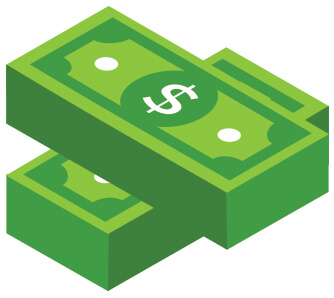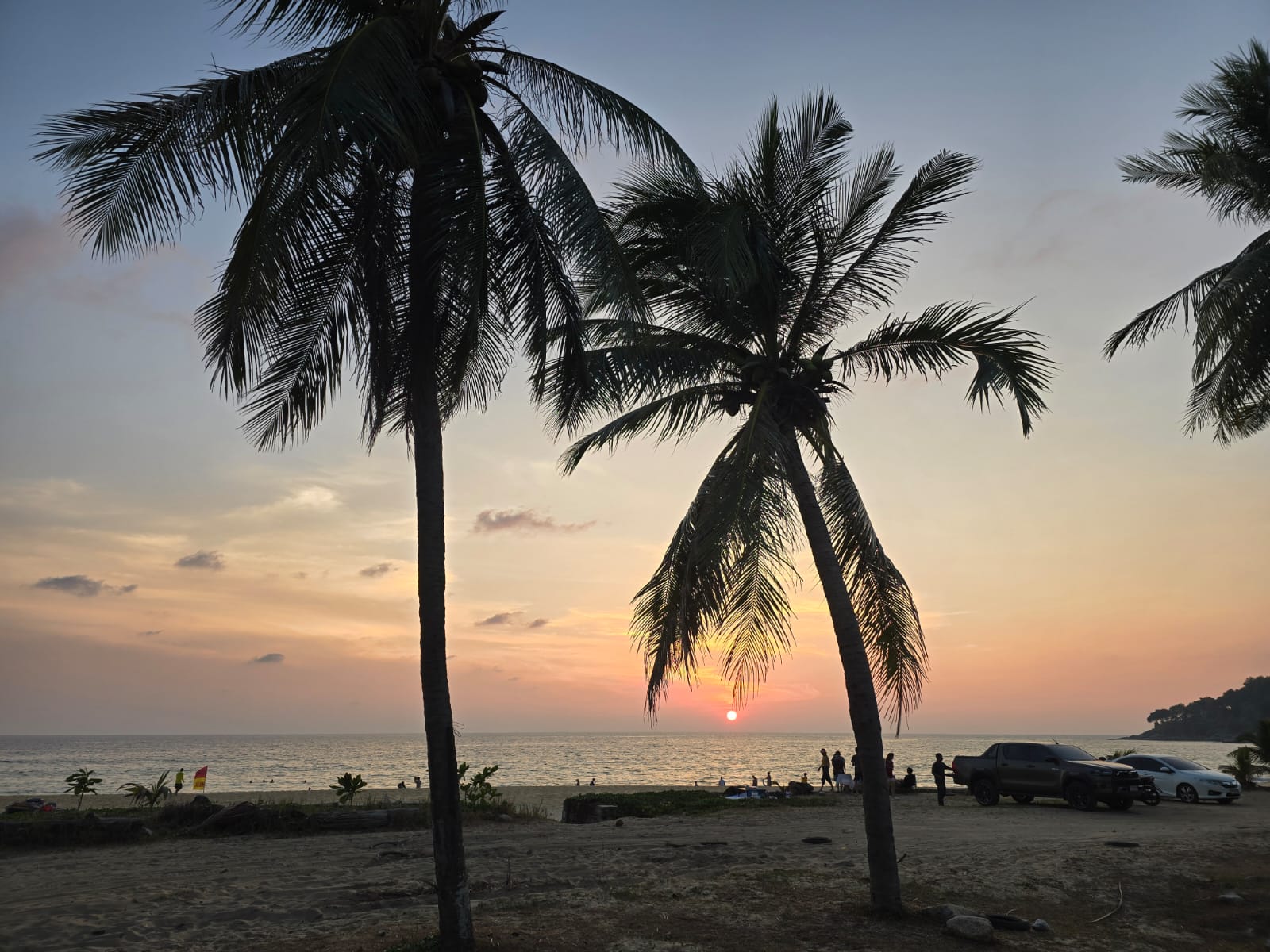
The potential for long-term capital gains has historically driven most global property markets, and while this is still a reasonable expectation in Phuket, the market is being driven by investors now, and they are demanding a better return on their money.
The developments offering guaranteed returns are in high demand. The returns vary, but the average is between 6-7% per year. The time frame of the guaranteed income can be as short as 3 years, but some developers offer guaranteed returns for up to 20 years. If owners are part of a rental program, they are also offered at least two weeks (sometimes up to 2 months) of personal use per year. Occasionally, the length of personal use allotted will be based on whether the owner wants to use it in low season or high season.
In some cases, owners are asked to keep the standard interior design and furniture package. The decor may not represent the owners’ personal tastes, but the management company must be able to advertise and deliver a consistent standard.
Both villa and condominium projects are marketed as income producing, but condominiums, being more affordable, make up the bulk of sales in Phuket. There are also “condotels,” which enjoy both condominium and hotel licenses. They have professional management like other condos, but the extra hotel license allows the properties to be rented out on a short-term basis (i.e. for periods shorter than 30 days).
Sam Fauma and his colleagues at the International Law Office have some advice on short-term and long-term rentals.
 What Sam Says About Short-Term vs. Long-Term Rentals
What Sam Says About Short-Term vs. Long-Term Rentals
The Hotel Act of Thailand (2004) clearly states that a hotel is “an accommodation established for business purposes of providing temporary accommodation service for travellers or any other person in exchange for compensation.” However, the Act specifically excludes from that definition “an accommodation established for the purpose of providing accommodation service for monthly paid service charge or upward only.”
In other words, any business providing temporary accommodation for a period shorter than 30 days is considered to be operating as a hotel, and falls under this act. A condo or villa owner in Phuket may not realise it, but if they are renting through an agent or an internet service (e.g. booking.com or airbnb.com) they, too, may find themselves defined as a hotel, and thus be required to have a hotel license in order to offer short-term rental.
Thankfully, in 2008, there were Ministerial Regulations issued for an exemption from this Act, as follows: “Any dwelling place which has a number of rooms not more than four rooms, whether in a single building or in several buildings, and with a total service capacity of not more than 20 guests, operating as a business which provides an additional source of income for the owners.” So if you own a condo, or multiple condos, with no more than four bedrooms, sleeping no more than 20 people, you may apply to exempt your properties, and carry on with legal short-term rentals. As the owner of such premises, however, you are also required to report to the Hotel Registrar.
The popularity of Airbnb (especially) has highlighted the number of rentals which are technically illegal, but they do not have to be. It is surprising how few people make the effort to ensure that they are in compliance with Thai law when they rent their property.
Are the Guaranteed Returns on Investment (ROI) Really Guaranteed?
Clint Eastwood once said, “If you want a guarantee, buy a toaster.” So what would Dirty Harry make of the guarantees being offered by Phuket property developers? Are the returns really 100% guaranteed?
This question does not have a straightforward answer, and without trying to be funny, the best answer really is yes…and no.
First and foremost, the guaranteed return contract must be reviewed by a lawyer to ensure it represents the buyer’s interests. If it is poorly constructed, part of the return could be going to the developer for common area maintenance, while the buyer is left to pay for their own maintenance and management fees. Because these fees are typically absorbed by the developer, this underlines the importance of securing the right lawyer.
Once the wording of the contract is ensured, in our experience, short-term guarantees are realistic because developers usually budget for this expense. In most cases, it will already be built into the sales and marketing costs of each unit. In fact, some developers actually prepay the rental returns as a lump sum as soon as the final payment on the condo is received.
The viability of longer-term rental guarantees, however, will be down to the overall health of the tourism industry in Phuket. Any major contraction in tourist figures would almost certainly trigger a contraction of the local economy. A prolonged contraction would have a knock-on effect on the property market, as guaranteed returns are based on filling available units with tourists every year.
The number of tourists visiting Phuket has been steadily increasing over the last twenty years. During this time there have been events which negatively impacted tourism (see Black Swans of Tourism on page 66), but after a falloff, the number of tourists continued to reach new highs.
But how bad were the bad years? There was the Asia Crisis, the bursting of the tech bubble, bird flu, SARS, the global financial crisis, military coups and a tsunami in the middle of peak season. These events had a marked effect on tourism at the time each occurred, but both Thailand and Phuket bounced back with renewed vigour each time.
In terms of rental guarantees, the only thing likely to derail most ROI agreements (aside from poor management or bankruptcy) would be a ruinous contraction in the tourist economy. If a buyer is motivated by the promise of guaranteed rental returns, they should have a lawyer carefully review any agreement drawn up by the developer or management company, especially if they are buying multiple units at a single development.
The necessary due diligence must find out as much as possible about the:
- credit worthiness of the developer
- track record of the management company
- terms of their own occupancy, and
- consequences should they decide to sell the unit during the guaranteed period (to make sure there are no penalties for doing so).
It is also worth asking what happens when the terms or promises made by the developer and/or management company are not met in full. If the conditions are not met, what other forms of compensation exist?
These checks may be moot if the development prepays the rental returns, which would negate any risks involved with the guaranteed rental return contract.
Owners in Phuket who rent their properties out to holiday makers are seeking clarification on the situation regarding short term rentals. You can read our article about this here:
An Overview on the Current Situation of Short-Term Rentals in Phuket 2019

One of the latest marketing strategies by developers, especially on leasehold units, is to offer buyers a guaranteed buy-back program. This is effectively promising to buy back the condo unit or villa at full price, or even at a profit, after 5, 10 or 15 years. Here is our article on the subject:
What Is a Developer Guaranteed Buy-Back Option When You Buy a Phuket Condominium or Villa?
In a Nutshell
The property sector remains extremely buoyant, with condominium prices in Phuket far from being in bubble territory. Amazing deals are still easy to find for anyone seeking a home in paradise. Based on the low-end price comparisons with most western economies (and even other Asian ones) current prices in the Thailand property market represent great value.
Anyone looking for an investment property is spoiled for choice, with new units in quality condo developments starting under US$ 100,000, while upscale luxury villas can run into the tens of millions of US$. Phuket has something for every buyer, whether they are looking for sea and sand, a cooler hilltop location offering peaceful seclusion, or the hustle, bustle and excitement of the towns.
Guaranteed rental return schemes are legitimate, and for the most part are well run, but they may also be vulnerable to circumstances which are well outside of the control of the developer.
So while a developer’s offer of returns cannot, of course, be 100% guaranteed, rental returns in Phuket have been very consistent for over two decades and have even survived some significant bumps in the road which may have proven crippling to another tourist market.
Phuket Real Estate Market Articles
The Unbelievable Amount of New Property For Sale in Phuket
Phuket has seen spectacular growth in the real estate sector, with new projects springing up everywhere. This has created a huge choice of properties to choose from, ranging from extremely well priced condominiums, to luxury villas up in the tens of millions of US Dollars. This has, in many ways, revitalized the Phuket property sector. So vast is the current available choice of real estate in Phuket, it is almost impossible to remember every new project.
Factors Effecting Real Estate Prices in Phuket
It is almost a misnomer to refer to "The Phuket Real Estate Market" because it is not a homogeneous entity. It is divided (and even subdivided) into categories which collectively include a diverse array of
Valuing a Phuket Property
VALUING A PHUKET PROPERTY When a seller advertises a property the price is their notion of the home’s worth, but the only true valuation comes when they find a buyer who agrees with them. Value is therefore far more
Types of Phuket Property
TYPES OF PHUKET PROPERTY In an effort to help buyers better identify their ideal property, Thai Residential have classified the different types of properties available in Phuket. While the choice is extensive, the categorisation is perhaps somewhat subjective. Different
The Demand For Rental Income in Phuket
The potential for long-term capital gains has historically driven most global property markets, and while this is still a reasonable expectation in Phuket, the market is being driven by investors now, and they are demanding
The Inherent Risks to Buyers of Phuket Property
It should stand to reason that someone making a major purchase, especially one as large as a property, will endeavour to do the relevant research before they sign on the dotted line. Anyone who is not inclined to conduct


Social Contact